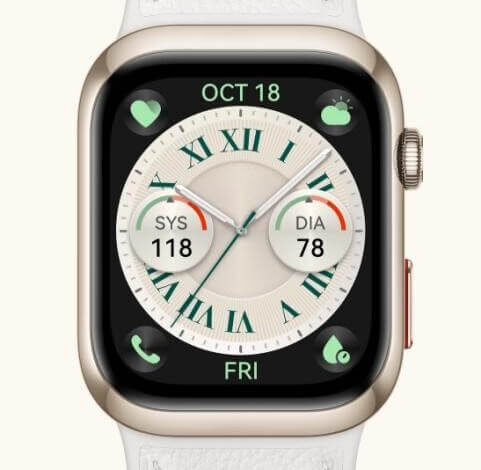Can Managing Blood Pressure Prevent Cognitive Decline?

Understanding the relationships between cardiovascular health and cognitive function is crucial for long-term wellness. Blood pressure, in particular, plays a significant role in brain health. Numerous studies suggest that managing blood pressure effectively can help reduce the risk of cognitive decline. Regular monitoring with a blood pressure monitor allows individuals to track their levels and make necessary adjustments to prevent cognitive deterioration. Exploring how blood pressure impacts cognitive function can guide us in taking proactive preventive measures.
What is the Connection Between Blood Pressure and Cognitive Decline?
How Does High Blood Pressure Impact the Brain?
High blood pressure, or hypertension, can damage blood vessels throughout your body, including those in your brain. This damage can reduce the ability of arteries to deliver oxygen and nutrients to brain cells, leading to cognitive impairment. Chronic hypertension accelerates the wear and tear on brain cells, which potentially contributes to the development of Alzheimer’s disease and other forms of dementia. Constantly elevated blood pressure levels may also lead to mini-strokes, which further deteriorate cognitive functions.
Can Low Blood Pressure Also Affect Cognitive Health?
While high blood pressure is a well-known risk factor, low blood pressure can also negatively impact cognitive health. Hypotension can reduce blood flow to the brain, leading to inadequate oxygen and nutrient delivery. This condition may cause fatigue, dizziness, and cognitive issues. Research shows that both extremes of blood pressure can be harmful, emphasizing the importance of maintaining balanced blood pressure for optimal brain function.
Key Studies Linking Blood Pressure and Dementia Risk
Multiple studies have highlighted the link between blood pressure and dementia risk. One significant study found that individuals with untreated hypertension in midlife were more likely to develop dementia later. Another study revealed that aggressive management of blood pressure could lower the risk of cognitive decline. These findings underscore the importance of routine blood pressure monitoring and management to protect cognitive health.
Can Lifestyle Changes to Manage Blood Pressure Help Protect Brain Health?
Diets That Support Both Heart and Brain Health
Adopting a diet rich in fruits, vegetables, whole grains, and lean proteins can help manage blood pressure effectively. The DASH (Dietary Approaches to Stop Hypertension) diet, known for its blood pressure-lowering effects, also promotes brain health. Foods high in omega-3 fatty acids, such as fish, flaxseeds, and walnuts, support both cardiovascular and cognitive functions and should be included in your diet.
Physical Activity and Its Role in Cognitive Preservation
Regular physical activity is another cornerstone of blood pressure management and cognitive health. Engaging in aerobic exercises like walking, swimming, or cycling can help lower blood pressure and improve blood circulation to the brain. Exercise also encourages the release of brain-derived neurotrophic factor (BDNF), which supports neuron growth and cognitive functions. Aim for at least 150 minutes of moderate-intensity exercise per week.
Stress Management Techniques to Lower Blood Pressure
Stress can contribute to elevated blood pressure levels, adversely affecting brain health. Incorporating stress management techniques, such as mindfulness meditation, yoga, and deep breathing exercises, can help control blood pressure. These practices promote relaxation, reduce anxiety, and enhance overall brain health. Finding effective ways to manage daily stressors is vital for maintaining both cardiovascular and cognitive health.
How Does Technology Aid in Monitoring Blood Pressure for Cognitive Health?
Benefits of Ambulatory Blood Pressure Monitoring
Ambulatory blood pressure monitoring (ABPM) offers continuous blood pressure readings over 24 hours, providing a comprehensive view of your blood pressure patterns. This method allows you to understand how your blood pressure fluctuates throughout the day and night, offering insights into how different times and activities influence it. ABPM can detect hypertension that might not be apparent during a single doctor’s visit, enabling early intervention and improved management strategies.
Role of Wearables Like HUAWEI WATCH D2 in Preventive Care
Wearable devices such as the HUAWEI WATCH D2 revolutionize preventive care by offering on-the-go blood pressure monitoring. This innovative watch can automatically monitor your blood pressure at regular intervals, whether you are at your desk, watching a movie, or sleeping. Equipped with a high-precision pressure sensor and mini pump, it delivers accurate measurements, providing immediate results and long-term data for better health management.

Real-Time Data Insights to Support Cognitive Health Goals
Real-time data from wearables like the HUAWEI WATCH D2 provides valuable insights into blood pressure trends, helping users make informed decisions about their health. The device offers a convenient Health Glance report featuring six key indicators and dynamic trend graphs. This data supports users in tracking their progress, setting cognitive health goals, and adjusting their lifestyle to maintain balanced blood pressure levels and protect brain health.
Conclusion
Maintaining optimal blood pressure plays a crucial role in preventing cognitive decline. Both high and low blood pressure can adversely affect brain health, emphasizing the need for balanced levels. Lifestyle changes, such as a balanced diet and regular exercise, significantly contribute to managing blood pressure. Advances in technology, particularly wearables like the HUAWEI WATCH D2, enhance our ability to monitor and manage blood pressure effectively. Adopting these strategies can aid in protecting cognitive function and ensuring long-term brain health.







